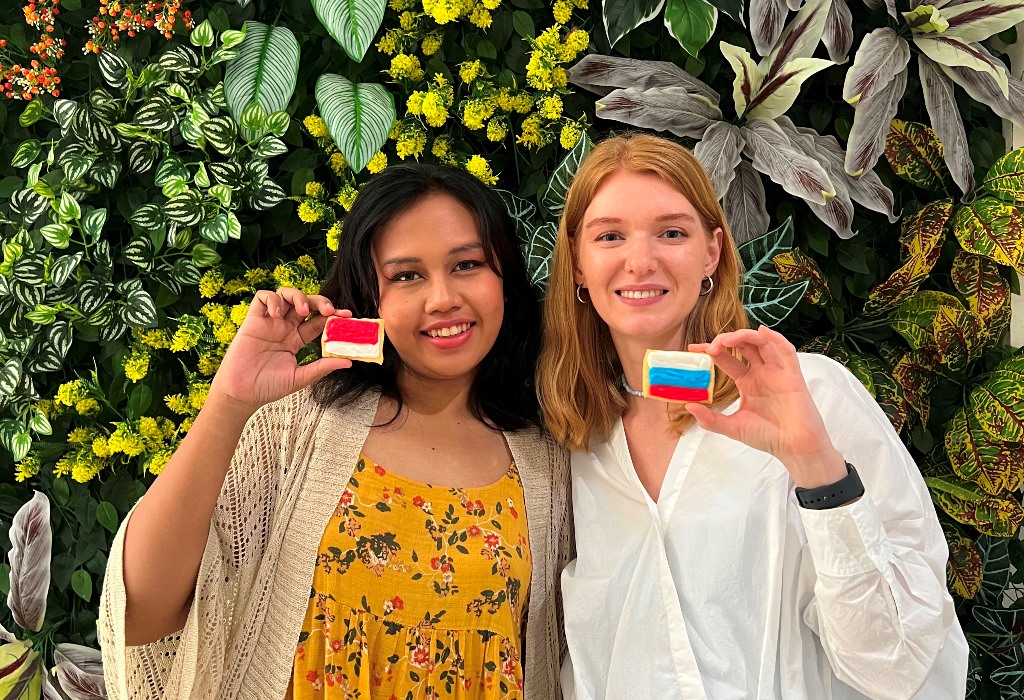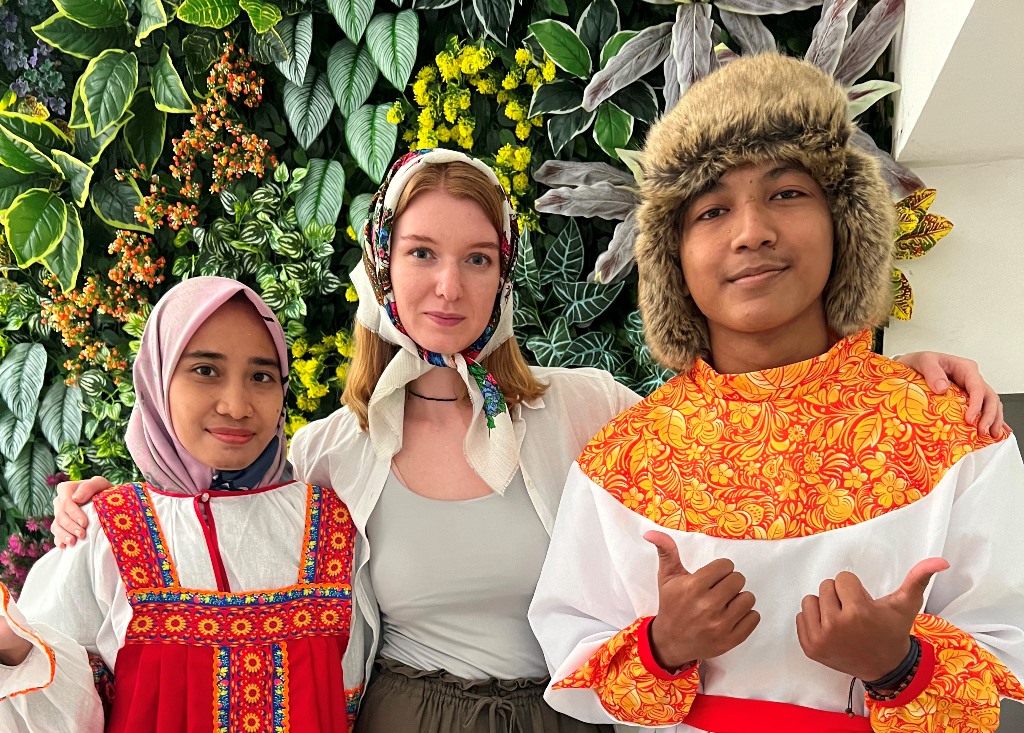Elena Shlotgauer, a staff member of the Pre-courses Department, recently spent two months teaching Russian in Indonesia at the representative office of the University of Tomsk. Elena told the Alma Mater university newspaper who chooses to study such a difficult language and why, how Indonesians regard Russia, and where a Soviet submarine in the center of the Indonesian city of Surabaya came fr om.
Q: Elena, tell us who you taught Russian to and the level of interest in studying Russian in Indonesia.
A: I worked for two months in the city of Surabaya, wh ere the Institut Teknologi Sepuluh Nopember (ITS) is located — a TSU partner, where the representative office of the Greater Tomsk University was established. There were many students among the participants of the language courses, but it was not just them. One group studied Russian offline, while other two groups studied Russian online. We chose the online format because people fr om all over the country began to show interest in learning Russian.
The groups consisted not only of university students but also those who had already completed their higher education. The youngest participant was only 10 years old and the oldest was 70. A retired man enrolled in the course to refresh his knowledge of Russian he had acquired in his younger years. I could feel that he already had a background, and he was very good at the language.

Indonesians are very kind and open people. Moreover, they were also united by a common interest in studying the Russian language. It was very curious and pleasant to see how the oldest and youngest students became friends. They communicated a lot and supported each other during classes. In fact, one of them was old enough to be the other's granddad, but they became friends during our course.
Q: Elena, why did people choose to study Russian? Did your students tell you about this?
A: The main reasons for the students are their interest in the language and the prospect of studying in Russia. Indonesians come to us quite eagerly. I should say that the representative office is headed by Rizqina Ramadhaniah, an Indonesian alumna of TSU, and I personally taught her Russian at the Pre-courses Department. Other students had very different reasons for discovering a new language.

For example, one woman is studying Russian because her daughter is now studying at TSU. The mother wants to come to Tomsk, but not only to meet her daughter, but also to fully immerse herself in Russian culture. Furthermore, she needs it for her job, as she works in Bali in tourism. There are many Russian tourists, so the Russian language will be very useful to her. Visiting Russia is a challenge for most of the students because of the great distance between our countries. For them, the main reason to study Russian is an interest in a distant country and its culture.
Q: So it turns out that the language is a kind of bridge that leads to Russia?
A: Of course! And one of the main functions of the representative office opened by Tomsk universities in Indonesia is to familiarize Indonesians with the country and culture. Apart from language courses, we held many workshops, which people who had not studied Russian attended with great pleasure. We told them about the education system in Russia, about holidays. We held a workshop on gingerbread painting to celebrate February 23rd - we made an edible card for men. However, they reached the men only partially, because everyone wanted to try what they had made. Then, we colored small nesting dolls that I had brought with me to celebrate 8 March (International Women's Day). People came, including mothers with their daughters. It was obvious that they were very interested in everything that was going on. Perhaps our workshops will inspire them to learn Russian.

Q: You describe Indonesians as extremely friendly people. Is that part of their outlook?
A: I think so, yes, but there is another observation — I think they have a very warm attitude towards Russia. When they realize that you are from Russia, they try to support you in any way they can. Once, during a heavy rainstorm, a woman approached me in the street and offered me her umbrella. I started to refuse, but she smiled and said she had another one. Perhaps this attitude is a legacy of the past, because our countries were very friendly in the second half of the twentieth century. First Secretary of the Communist Party of the Soviet Union Nikita Khrushchev even gave the first president of Indonesia Sukarno a submarine as a symbol in the Indonesians' struggle for the territorial integrity. Now it is located in the center of the city of Surabaya.
There is a museum inside the submarine wh ere everything is written in Russian. It is very nice to see this when you are away from your home country. Obviously, few Indonesians today were present for those times of great friendship, but perhaps the warm attitude towards Russia has been passed down from generation to generation. In any case, when you are in Indonesia, you feel that you are very welcome. I am sure that my colleague who recently headed to Indonesia to teach Russian at the representative office of the Greater Tomsk University will also feel the warmth of the Indonesians.